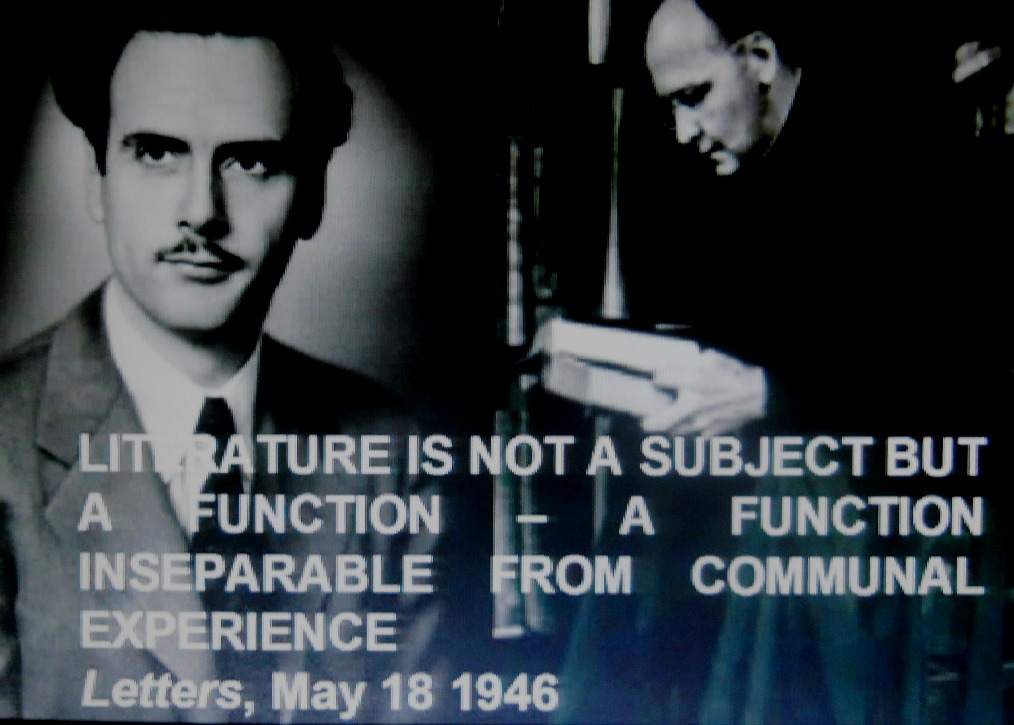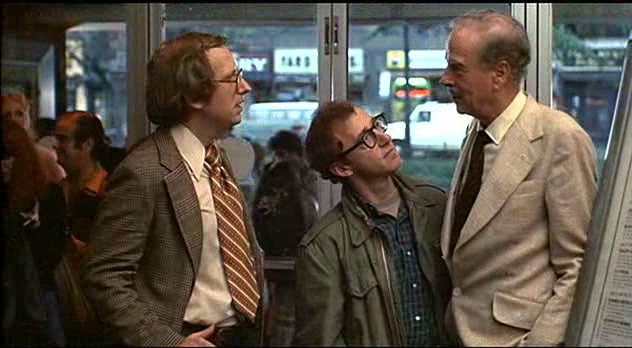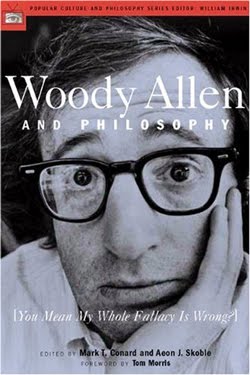COUNTERBLAST: The Rogue McLuhan: Elena Lamberti (it) about McLuhan
Please take your time and enjoy the presentation Prof. Elena Lamberti does about Counterblast.
The opening slide says:

Prof. Elena Lamberti adds the following phrase that could and may still become an aphorism:
"Consistently McLuhan never approached literature as a subject, he literally applied literature to the observation of his own actuality, after all he used to define his own exploration on media as applied Joyce."
This project is exactly the opposite: we will probe Joyce as applied McLuhan.
He gave the importance, or confirmed, Joyce as it has been done maybe since Ezra Pound stated and was followed by Hemingway, as Prof. Heffernan tells us and I quote:
Joyce was initially confirmed by three American writers, Ernest Hemingway, who made the famous statement that Mr Joyce had "the" novel in my hands. Ezra Pound, who hit back to George Moore (and those who follow him), saying that all men should unite and cheer Ulysses and those who didn't, may be put in the group of less gifted intellectually. TS Elliot, in turn, said he considered this book the most important expression of this era, and we are all indebted to it and from which nobody can escape. Elliot, informs us Heffenernan, said Joyce fled the standard literary approach from the 19th century, which used a single consistent and particular point of view. Joyce did it handling a continuous parallel between contemporaneity and antiquity, what TS Elliot called mythical style. Elliot also said that Joyce used an ancient mythic structure to make sense of control, order, take a way a significance to the huge panorama of futility and anarchy which is contemporary world. The paradox lies in the fact that this ordinary man who must come together and applaud Joyce, does not understand anything of what he meant, not even managing to completely read the book, as it is well known. In this sense, the most notable effect of Joyce's Blooms day is a celebration that becomes universal.
The crucial difference between Joyce and McLuhan is that while McLuhan was using literature to develop his media concepts, Joyce was using literature to his own benefit. When we come to the point where Joyce will be probed as applied McLuhan, this will become more clear, but for the moment, that we are establishing the sacaffolding of our paradigm, it should be also mentioned that this fact has already been noticed and I quote, from MARSHALL MCLUHAN AND JAMES JOYCE: BEYOND MEDIA Donald Theall and Joan Theall, as published in the CANADIAN JOURNAL OF COMMUNICATION/Special Issue 1989:
The irony of all the complex contradictions of Marshall McLuhan's variegated career apparently is that he failed to successfully communicate the insights of contemporary poetry and art to communications researchers. Whatever else McLuhan was up to in his sometimes exasperating and,often enigmatic writings, he developed a theory of communication which he considered to be "applied Joyce," in the same sense that he had analyzed Joyce as developing an aesthetic which was "applied Aquinas."' At one stage or another, the working title for both The Gutenberg Galaxy and Understanding Media was "The Road to Finnegan's Wake". In a certain sense, this title was McLuhan's Work in Progress (Joyce's own working title for Finnegan's Wake). Consequently, it has, as McLuhan himself suggests in the epigraph, been unfortunate that many of those involved in communication and cultural studies have never read his works in relation to the history of art and literature from the 1880's to the 1960's.
The real irony is that there is no mention to Joyce as a "applied McLuhan" and Finnegan's Wake was never probed under McLuhan's concepts. Better yet, McLuhan considered The Gutenberg Galaxy and Understanding Media The Road to Finegan's Wake, using the Bob Hope, Bing Crosby and Hedy Lammar movies that were very popular in the 40's, 50's and even in the 60's. Donald Theall, in note 2 of his paper tells us, and I quote:
McLuhan began entertaining the idea of writing a book whose working title was "The Road to Finnegan's Wake", which he discussed with me on various occasions in the early 1950s. He referred to it on many other occasions when we met from time to time between 1955 and 1965. The Gutenberg Galaxy involved many of the topics which were to have been covered in the "Road. The working title made allusion to Vico through the Vico Road of the Wake, but also jokingly alluded to the popular Bob Hope, Bing Crosby and Dorothy Lamour series of road movies.
The problem with such kind of analysis is that the concern is about theory as such, while McLuhan was concerned with the actuality of what was happening. His research and findings are devoted to discover how ideas are transmitted, how people are motivated, what happens in the process of reality getting inside of us through our senses and, most of us, how we represent it back to our peers. How reality penetrates our senses?
Using his findings and applying it to literature we should extract notions what literature is all about in terms of his speciality: communication.
How this happens to newspaper can be fully apprehended in the Nieman Reports: I Think Mr. McLuhan Is Trying to Tell Us Something, by Sylvan Meyer
It can be safely said that one of the characteristics of the "Ivory Tower" built around literature is that it nurture itself with suggestive questioning, i.e., as can be understood in the article pointed, "there is a set of expected answers and notions embedded if it is to be taken into consideration".
Suggestive questioning is one of the worst characteristic of epistemology and will be taken in our project as Nepistemology.
Which grants us the clear perception of what Prof. Elena Lamberti wanted to say with her first paragraph on page 9 of her book Marshal McLuhan Mosaic, and I quote:
"The anthropologist Edmund (Ted) Carpenter, Marshall McLuhan's lifelong friend and colleague, wrote that 'knowledge of media alone is not sufficient protection from them' a fact, he explained, that also applied to the man who taught us how to understand media: 'The moment Marshall McLuhan shifted from private media analyst to public media participant, he was converted into an image media manipulated & exploited'".
It should be mentioned that the start of McLuhan studies on communications and media was through a 40000 dollars grant from the Ford Foundation that was obtained by the old friend of Ted Carpenter, Claude Bissel, in 1957, when he was vice president of the university.
Since this is a fact that already happened, not to McLuhan's benefit, this project intends to restore him to where he belong, i.e. if not above Joyce, at least on the same level.
One of the most acute evidence of how McLuhan was careless and paid the price of it can be traced in the line that he said on one of the most recalled memories of him, in the Woody Allen movie Annie Hall:
“I heard what you were saying. You know nothing about my theories. You mean my entire fallacy is wrong.”


Use some time and read this interesting analysis of this "glitch" and come back here.